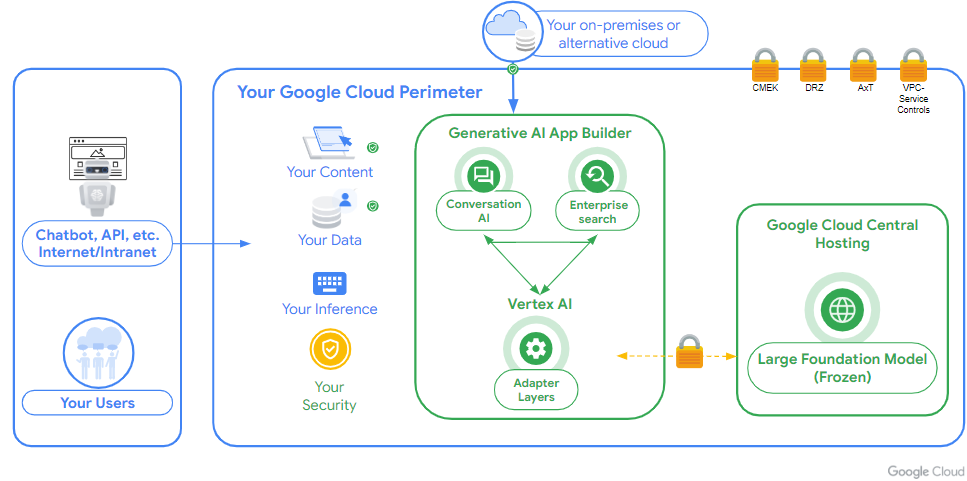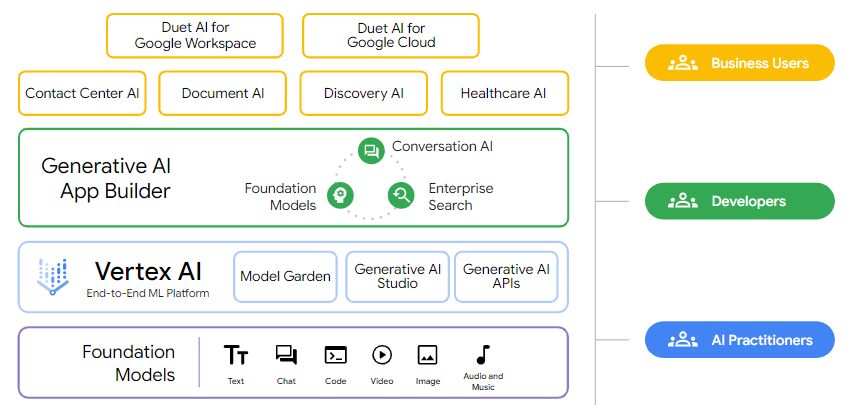Unleashing Business Potential: Leveraging Google's ML and AI Tools
Here's how businesses can leverage Google's ML and AI tools to unlock their full potential:
-
Enhance Customer Experience:
- Personalization: Utilize AI to personalize the customer journey by tailoring marketing campaigns, product recommendations, and website experiences based on individual preferences and past behavior. Google tools like Customer Match and Audience Insights can help you achieve this.
- Improved Customer Service: Leverage AI chatbots to answer basic inquiries, provide 24/7 support, and resolve simple issues, freeing up human agents for more complex tasks. Google offers Dialogflow for building and deploying conversational interfaces.
-
Boost Operational Efficiency:
- Automated Tasks: Leverage AI to automate repetitive tasks like data entry, scheduling, and report generation, freeing up valuable employee time for higher-level strategic thinking. Tools like AppSheet allow you to build no-code workflows to automate processes.
- Predictive Maintenance: Implement AI to analyze sensor data and predict equipment failures, allowing for preventative maintenance and minimizing downtime. Google Cloud offers Vertex AI with features to build and deploy custom machine learning models.
Enterprise architecture

-
Data-Driven Decision Making:
- Data Analysis: Leverage AI tools to analyze vast amounts of data, identify trends, and uncover hidden insights that would be difficult or impossible to discover manually. Google Cloud offers tools like BigQuery and Looker for data warehousing and business intelligence.
- Market Research: Use AI to analyze customer sentiment, competitor strategies, and market trends to gain valuable insights and inform strategic decisions. Tools like Google Trends and Cloud Natural Language API can be helpful for this purpose.
-
Product Development and Innovation:
- Product Improvement: Utilize AI to analyze customer feedback and usage data to identify areas for product improvement and develop features that resonate with your target audience. Google offers tools like Cloud AI Platform for building and deploying custom machine learning models for product development.
Personalized Products: Leverage AI to personalize products based on individual customer preferences and needs, leading to increased customer satisfaction and loyalty. Google Cloud offers tools like Recommendation Engine for building personalized recommendations.
AI and Machine Learning Portfolio

Getting Started with Google's ML and AI Tools:
Google offers a range of ML and AI tools, many of which are available through Google Cloud Platform (GCP). GCP offers flexible pricing plans and free trials, making it easy for businesses of all sizes to get started and explore the possibilities. Additionally, Google provides extensive resources, documentation, and tutorials to help users leverage these tools effectively.
By embracing Google's ML and AI tools, businesses can unlock a wealth of benefits, from improved customer experiences and operational efficiency to data-driven decision-making and innovative product development. With its comprehensive suite of tools and resources, Google empowers businesses to stay ahead of the curve and thrive in the age of AI.
Other considerations…
- Identify Business Challenges and Opportunities:
- Assess your current business processes and challenges to identify areas where ML and AI can make a significant impact.
- Look for opportunities to automate tasks, improve customer experiences, optimize marketing campaigns, or enhance product development.
- Choose the Right Tools:
- Google offers a diverse range of ML and AI tools, each with specific capabilities.
- Consider factors like your technical expertise, data availability, and budget when selecting the right tools.
- Some popular Google ML and AI tools include:
- AutoML for building custom machine learning models without coding
- Cloud Vision API for image analysis and object detection
- Cloud Speech-to-Text API for converting speech to text
- Cloud Translation API for translating text into different languages
- Cloud Natural Language API for analyzing text and extracting entities and sentiment
- Integrate with Existing Systems:
- Integrate Google's ML and AI tools with your existing systems and data sources to ensure seamless workflows.
- Utilize Google's APIs, SDKs, and connectors to facilitate integration.
- Build and Train Models:
- For more advanced use cases, you can build and train your own custom machine learning models using Google Cloud AI Platform or TensorFlow.
- Google provides comprehensive documentation, tutorials, and code samples to assist with model development.
- Deploy and Monitor Models:
- Once your models are trained, deploy them to production environments to leverage their predictions and insights.
- Regularly monitor model performance and retrain them as needed to maintain accuracy and effectiveness.
- Upskill Employees:
- Invest in upskilling your employees in ML and AI concepts to foster a culture of innovation.
- Provide training programs, workshops, and resources to help employees understand and utilize these technologies effectively.
- Partner with Experts:
- Consider partnering with Google Cloud-certified partners or consultants who specialize in ML and AI implementation.
- These partners can provide guidance, support, and customized solutions to meet your specific business needs.
- Stay Informed and Updated:
- Keep up with the latest advancements in Google's ML and AI tools and technologies.
- Regularly review Google's documentation, attend webinars, and participate in online communities to stay informed about new features and best practices.
By leveraging Google's ML and AI tools effectively, businesses can gain valuable insights, automate processes, improve decision-making, and drive innovation, ultimately leading to increased efficiency, productivity, and competitive advantage.

.png)
-1.png?width=150&height=150&name=%5BTEMPLATE%5D%20Generic%20Webinar%20_%20Event%20_%20Ad%20Tile%20(4)-1.png)
.png?width=150&height=150&name=%5BTEMPLATE%5D%20Generic%20Webinar%20_%20Event%20_%20Ad%20Tile%20(11).png)
.png)
-1.png)
.png)